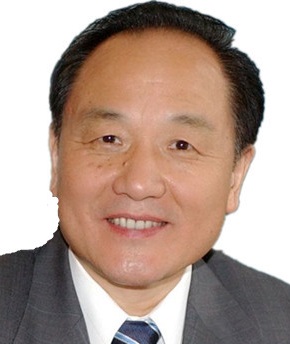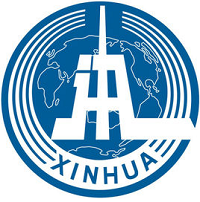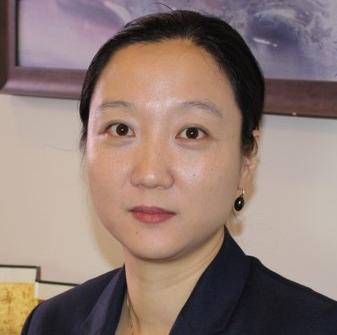The 9th Manama Dialogue jointly hosted by the London International Institute for Strategic Studies and the Bahrain government was held on December 6-8, 2013 in the country’s capital. About 60 ministers of foreign affairs and national defense from the United States, Britain, France, Italy, Iran and six Gulf Cooperation Council (GCC) countries, joined by hundreds of scholars and journalists, took part in the meeting on the theme of regional security and its impact on the world.
This was the second time I have attended the Manama Dialogue in the capacity of China’s Middle East envoy. I spoke at the meeting on the Syrian crisis.
Different from the 8th Dialogue, there was no longer clamor for military solution at this year’s meeting. Instead, participants mainly discussed how to make sure that the second Geneva conference on the Syrian issue is held on time in January next year and achieves a political solution. The meeting also looked at the Iranian, Palestinian and other regional hotspot issues and discussed how to use political and diplomatic means to precipitate reconciliation between conflicting parties. Drawing lessons from the development of the Middle East situation over the past year, the participants came to the understanding that military means would lead to nowhere while political solution is the only way out.
Nevertheless, US Defense Secretary Chuck Hagel made rather an assertive speech at the meeting announcing that the US would maintain a powerful military presence in the Gulf region, which comprises 35,000 military personnel, 40 warships including an aircraft carrier, advanced radar facilities and reconnaissance drones. Needless to say, Hagel’s speech indicates the weight of Gulf security in the US’ global strategy and implies the need for the US to keep a deterrence force in the region. Meanwhile, Hagel’s speech was also interpreted as an attempt to placate the US’ allies in the region, for Washington’s wavering on the Iranian nuclear talks and Syrian chemical weapon crisis had caused worries among the allies. As a way to appease them, Hagel delivered a stern warning to Tehran against its bid to extend influence in the region, emphasizing that it is unacceptable for Iran to possess nuclear weapons. But he also made it clear that diplomatic solution was still the best choice for regional hotspot issues. He said the interim agreement reached with Iran “provided time for serious negotiations.”
In their speeches at the Dialogue, Saudi Arabia and other GCC countries argued that the GCC should be involved in the process of settling the Iranian nuclear crisis for the issue matters greatly to their security. They also called for establishment of a “no WMD zone” in the Gulf region. These appeals reflected GCC countries’ concerns about the regional security and their will to play a greater role in regional affairs. Qatar’s foreign minister emphasized in his speech that to maintain regional security, “all parties in the region need to strengthen cooperation to build a bridge of mutual trust” and that “since the problem appeared in the region, the solution lies in the region.”
When changes happen to the situation, people should change their way of thinking accordingly. They should try new methods for problem settlement. The voices of the GCC countries at the Manama Dialogue conveyed their new thoughts. While seeking external support, they are depending more on exchanges within the region to enhance mutual trust.
In the past three years after the “Arab revolution”, the situation in Middle East remained turbulent but the Gulf area was relatively stable as an exceptional “safety island”. The GCC countries have resolutely given up their old ways of low-key diplomacy and become more assertive in regional affairs. And they are enjoying a higher status in politics, diplomacy, security and economy. The strong will they expressed at the recent Manama Dialogue for a more active role in the Gulf security deserves attention from the rest of the world.
China has unswervingly followed the principle of non-interference in any sovereignty country’s internal affairs in the Middle East but it also played a constructive role in the settlement of hotspot issues. It has faithfully committed to its responsibility as a big country. China attaches great importance to relations with GCC and its member states. Chinese foreign minister meets with his counterparts from the group at the UN general assembly every year. The cooperative mechanism of strategic dialogue between China and GCC has been strengthened. On Middle East hotspot issues, China has always been objective and impartial, persisted in the principles and honored its responsibilities faithfully. No matter how complicated and difficult the situation became, China has kept working for a political solution of the Syrian crisis and the Iranian nuclear issue. Such stance of China has won acknowledgement from more and more nations.
During the Manama Dialogue, I had talks with deputies from the Syrian National Coalition and other parties and briefed them about China’s ideas and proposals. The concept of human race being a community of common fate that China has raised is of far-reaching significance for settling the Middle East problems politically and maintaining regional peace and has gradually been accepted by all parties in the region. It shares some similarities with the US’ idea of giving priority to diplomatic effort. There is still a long way to go before the Middle East hotspot issues are settled and the road is riddled with difficulties. But we must keep moving on because it concerns the world’s peace and prosperity. The US has been playing a pivotal role in the Gulf and Middle East. China, as a permanent member of the UN Security Council, is also committed to its part. For stabilizing the situation in Middle East and expediting the peace process in the region, it is undoubtedly of great significance for the US and China to strengthen communication and coordinate their efforts on the strategic level.
Wu Sike is a member on the Foreign Affairs Committee of the Chinese People’s Political Consultative Conference and member on the Foreign Policy Consulting Committee of the Ministry of Foreign Affairs.



